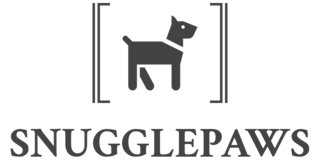
Share
A Beginner's Guide to Dogs: Breeds, Adoption, Training, Health Care, and Food Recommendations
Owning a dog brings joy to many people. However, for beginners, the journey with a dog can be somewhat challenging. This guide provides essential information for first-time dog owners, including dog breeds, adoption process, training methods, health care, and food recommendations.
Dog Breeds
Dogs come in a variety of breeds, each with unique characteristics and temperaments. Here are some popular breeds:
Golden Retriever: Friendly and loyal, they get along well with families.
Poodle: Intelligent and easy to train, they shed less and are hypoallergenic.
Siberian Husky: Energetic and active, they require an owner who can keep up with their exercise needs.
Chihuahua: Small and lively, they are well-suited for apartment living.
Bulldog: Gentle and friendly, they adapt well to family life.
Dog Adoption
Before adopting a dog, consider the following important factors:
Lifestyle: Choose a breed that matches your lifestyle and activity level.
Responsibility: Dogs are lifelong companions that require commitment and care.
Adoption Source: Adopt from reputable shelters or rescue organizations, ensuring the dog is healthy and up-to-date on vaccinations.
Dog Training Methods
Training is a crucial aspect of raising a well-behaved dog. Here are some basic training methods:
Housebreaking
It's important to train your dog to eliminate in designated areas.
Consistency: Take your dog to the same spot at the same times each day, such as after meals or naps.
Praise and Rewards: Immediately praise and reward your dog with treats when they eliminate in the correct spot.
Handling Accidents: If your dog has an accident, clean it up quietly without scolding them to avoid causing stress.
Basic Commands
Teaching basic commands helps improve communication with your dog.
Sit: Use a treat to get your dog's attention. Hold the treat above their head and say "sit." When they sit down, praise them and give the treat.
Stay: With your dog in the sitting position, say "stay" while showing your palm. Gradually increase the time they stay before giving praise and a treat.
Come: Call your dog from a distance using the command "come" and show a treat. When they come to you, reward them with praise and a treat. Repeat until they respond reliably.
Socialization Training
Socialization helps your dog become comfortable with various environments, people, and other animals.
The Importance of Socialization
Proper socialization builds confidence and reduces anxiety and aggressive behaviors. It should be a focus during the first few months and continuously reinforced.
Interaction with People
Expose your puppy to different people to enhance their friendliness and reduce fear.
Family and Friends: Introduce your puppy to family members and friends regularly.
Strangers: During walks, allow your puppy to meet strangers in a controlled manner. Ensure interactions are positive and not overwhelming.
Interaction with Other Animals
Meeting other dogs and animals enhances your puppy's social skills.
Dog Parks: Allow your puppy to play with other dogs in a safe, enclosed area.
Walks: Encourage positive interactions with other dogs during walks.
Training Classes: Enroll in puppy training classes to facilitate socialization with other dogs in a controlled setting.
Exposure to Various Environments
Introduce your puppy to different environments to help them adapt to new situations.
Noise Exposure: Gradually expose your puppy to household noises like vacuum cleaners and washing machines.
Traffic Exposure: Safely introduce your puppy to traffic sounds and movements.
Public Places: Take your puppy to parks, cafes, and other public places for varied experiences.
Positive Reinforcement
Ensure your puppy has positive experiences during socialization by using praise and rewards.
Praise and Treats: Reward your puppy with treats and praise for calm behavior in new situations.
Playtime: Make new experiences enjoyable by incorporating playtime.
Dog Health Care
Maintaining your dog's health requires regular care and attention.
Regular Check-ups
Schedule regular veterinary check-ups to monitor your dog's health. This includes vaccinations, dental care, and weight management.
Vaccinations
Ensure your dog receives necessary vaccinations according to their age and health status.
Deworming
Regularly administer deworming treatments to prevent internal and external parasites, especially during the summer.
Nutrition
Provide a balanced diet tailored to your dog's age, weight, and activity level. Avoid overfeeding and limit treats to prevent obesity.
Exercise
Ensure your dog gets enough exercise through daily walks and playtime. Exercise is vital for physical and mental well-being. Adjust exercise routines to match your dog's energy levels.
Dog Food Recommendations
Choosing the right dog food is crucial for your dog's health. Here are some recommended brands: Royal Canin: Offers a variety of breed-specific and health-specific dog foods.
Hill's Science Diet: Provides nutritionally balanced food for different life stages and health conditions.
Orijen: Made with high-quality ingredients and high protein content, suitable for active dogs.
Natural Balance: Known for hypoallergenic and high-quality ingredients.
Blue Buffalo: Uses natural ingredients and caters to various health needs.




